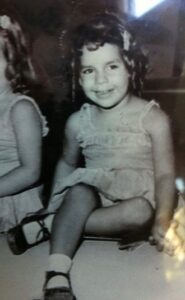Our Journey, Your Story
Navigating Immigration with Compassion and Expertise
Our Approach
At Black Card Express, we like to keep things personal and straightforward. Our way of helping you is simple—we listen, understand, and guide you through the immigration process step by step. We combine legal know-how with genuine care to make sure you feel supported and confident along the way. Whether it’s filling out forms or navigating complex rules, we’re here to turn your dreams of being together into a reality. Your story is what matters most to us, and our approach reflects our commitment to making your journey as smooth and empowering as possible.
Why Choose Us?
01.
— Our Mission
Our mission at Black Card Express is to empower and uplift immigrant families by providing expert guidance and unwavering support throughout their immigration journey. We are committed to fostering togetherness, turning dreams into reality, and creating a world where borders keep no family apart.
02.
— Our Vision
Envisioning a world where love knows no borders, Black Card Express strives to be the beacon that lights the path to family reunification. We aspire to set a standard in the immigration service industry, fostering a community where everyone feels valued, supported, and united with their loved ones.
03.
— Our Values
Our values are like our guiding principles, and they come from the experiences of our founder, who knows what it’s like to be an immigrant. We believe in honesty, kindness, and doing our job with professionalism. We want you to always know what’s happening and to feel empowered every step of the way. Family is super important to us, and we treat every case like it’s our own family we’re helping. We’re all about bringing people together, supporting freedom, and positively impacting the lives of those we help—one family at a time.
04.
— Our Philosophy
Envisioning a world where love knows no borders, Black Card Express strives to be the beacon that lights the path to family reunification. We aspire to set a standard in the immigration service industry, fostering a community where everyone feels valued, supported, and united with their loved ones.
About Our Founder


I work in immigration because I know how it feels to be a refugee in more than one country. My Grandfather became a political prisoner on 12/19/1959. He was in jail for 12 years for standing up against Fidel Castro and the Regime as they wanted to take his land. After his release from prison, they made his life a living hell, sabotaging his crops because he was a farmer; my grandmother, who was the first Jehovah’s Witness in her town, was also persecuted. Their residence would be searched at least once a month without notice. During the years, they would detain my father, mother, aunts, and uncles for questioning as they were often accused of being spies for the American Government or they were hiding Bibles and publications against the regime.
He was able to tolerate the situation for a while. Still, it got to the point that even his doctors told my family that they needed to take him out of the country because they feared that someone from the government would kill him or he might also take his own life as he truly couldn’t tolerate communism. It was a big family. He had eight kids, spouses, and 15 grandkids, making it difficult for everyone to leave, so they had to make the hard decisions of who would be the one who would leave the country with him. If my grandmother left with him, it meant that he would lose his land, and this meant all of his kids who had their houses made on the land would lose everything and would be homeless, so the choice was made for my mother and her family to leave with him. They tried in 1980, but my Grandfather didn’t want to risk our lives with the ships that were bringing refugees in the massive migration called El Mariel in 1980. In 1984, Venezuela gave refuge, and he knew that it was a safe way. We arrived at a Shelter called The Cuban Home. In this shelter, we were separated. I remember this like it was yesterday. The kids all shared one room where they had bunk beds; my mom was in the mother’s room, as they called it, and the Men were in a separate house altogether.
I vividly remember being six years old when I had chicken pox. I remember because I was not allowed to be in the room with the other kids or in the mother’s room. My mom had found a job as a trauma nurse in a nearby hospital where she would do double shifts daily and come to the shelter where during the day, the other mothers and sister would take care of me. She would arrive from her double shift and would spend the night sleeping against the wall of the living room floor so she could be with me. After about 4 to 6 months, they saved enough money and were able to rent out their first apartment. Two bedrooms, one for my parents and the other one of our two bunk beds again where my Grandfather, Brother, sister, and I would sleep. My Grandfather, who had never cooked a day in his life, became our babysitter.
He would make us what he could, mostly rice and fried eggs, and this was my favorite period as he became our best friend. I remember we moved three times from that apartment. We went to a house in this period, and my Grandfather met a family that owned many acres of land but did not know how to work the land. He landed a job teaching them how to work the land plant corn, potatoes, yuca, malanga, tomatoes, beans, plantains, bananas, and other things. Thirty-three years later, that family continues planting crops and living off the land. From there, we moved to an apartment downtown where I met my adopted aunt, and then we moved to a one-bedroom house that we made it to, and again, the 4 of us shared a room. In this house, I had the fondest memories and also my darkest. I grew closer to my Grandfather, and I lost him on February 14, 1990. The hardest part was that he never got to see his wife and kids again, and phone conversations were very minimal because the Cuban government would listen to them, and when they heard his voice, they would hang up the calls. We met many great human beings there, and to us, they were family.
On July 25, 1990, the Cuban American Foundation was able to get us refuge here in the United States. We were greeted by the founder of the Cuban American Foundation, Jorge Mas Canosa, who was a political prisoner with my Grandfather and knew him well. That day, we arrived to a huge surprise as my cousins had brought my grandmother from Cuba, who had been given a visitor visa at the time. I remember seeing her through the glass and crying because all I could think about was that we left him behind, and he never got to see his loving Berna again. Here, we had to start all over again, a new country, a new language, and a way of living we weren’t accustomed to.
My grandmother stayed about 30 days, and again, we were alone. Still, this time, we had my mom’s cousins who welcomed us and gave us a place to stay and supported us after being in their house for about a month or so, one of my dad’s friends from Cuba did what many will now do he found us an apartment in West Palm Beach another friend gave my dad a car. We moved from Miami to West Palm Beach. I will forever be grateful to all the great friends and family who helped us along the way. Every example I have in my life is about a perfect stranger helping us and becoming family, so when I had to go to work, I didn’t know what I wanted to do, but I wanted to make sure it involved helping others. I started working in customer service in the radiology field. At this time, we started doing our own citizenship forms, and from there, I would help friends and family file their residences and citizenships. As the years went by, the radiology field lost the human connection. Many insurance guidelines and triple-booked schedules made it impossible to provide the level of care I considered essential.
Helping human beings, giving them the care they needed while never forgetting that I was there to help them get the answers they needed, and always keeping the values and principles I learned from my grandparents and parents. This is when I decided to make my hobby my career and work on what made me feel happy—reuniting families. I know what it feels like to be separated from your loved ones. Every time I get to give an immigrant a work permit, residence, or citizenship, or I get to reunite a family, it fills my heart because I know how it feels to be separated from my loved ones. I often hear people discriminating against immigrants and putting them down, and I assure you. No one leaves their homeland because they want to. Believe me, you never forget your homeland, but finding a place where you can be free and not have a fear of being killed and helping them become legal immigrants and seeing them build a new life in freedom is the most amazing feeling in the world.
